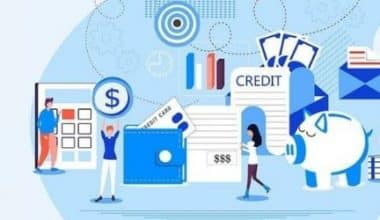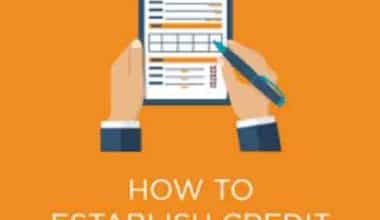An unsecured personal loan is something you might be interested in if you need assistance with unexpected expenditures. Personal loans that are disbursed without the use of any kind of security are known as “unsecured loans.” It is only predicated on the supposition that the borrower will honor the loan’s conditions and repay the amount. a loan secured only by the borrower’s creditworthiness. Unsecured loans require no collateral. Unsecured loans usually require good credit. Learn about Personal Unsecured Loans, Requirements, and Loans for Poor Credit in this post.
Unsecured Loan
Unsecured loans, as the name implies, are ones that are not backed by a valuable asset like gold, real estate, etc. These loans have higher interest rates since they provide a greater risk to the lender. A lender will evaluate your finances and determine your ability to repay the loan before deciding whether to approve an unsecured loan.
Many unsecured loan examples
- Credit cards
- Personal loans
- Student loans
Unsecured loans, usually referred to as signature loans or personal loans, are those that are approved without the use of real estate or other assets as collateral. The acceptance and receipt criteria for these loans typically depend on the borrower’s credit score. Frequently, unsecured loan applicants must have good credit to be approved.
In contrast to an unsecured loan, a secured loan requires the borrower to pledge a specific asset as collateral. More “security” for the lender to issue the loan is provided by the pledged assets. Mortgages and auto loans are two examples of secured loans.
Best Unsecured Loan
You can receive money with the best unsecured personal loans without having to be concerned about risking a personal asset, like the money in your savings account. It is also a good idea to compare loan offers since unsecured personal loans usually have higher interest rates than secured loans. To assist you in finding a loan that might be ideal for you, we’ve put together a list of the top unsecured personal loans.
#1. Marcus
Minimum credit score: Marcus withholds this information.
APR range: 6.74% to 24.74%, with autopay
Loan amounts: $3,500 to $40,000
The website offers three-to-six-year loans.
Autopay saves 0.25% on APRs from 6.99% to 19.99%. Unlike many other lenders, Marcus does not charge fees for sign-up, late payments, or early repayment. The platform’s configurable payment schedules and on-time payment reward benefit borrowers.
Pros and Cons
- No costs for beginning, paying in advance, paying late, or paying with insufficient funds
- gives third-party lenders direct consolidation payments.
- Throughout the loan, borrowers are permitted to adjust their payment date up to three times.
- There is no room for co-applicants or co-signers.
- cannot be utilized to refinance a student loan that already exists.
- Following loan approval, funding could take up to four days.
Despite Marcus making no mention of it, applicants must have a credit score of at least 660.
Relationships between the co-applicant and co-signer are not permitted by Marcus.
Marcus provides personal loans to suit a variety of requirements, including debt consolidation, home repairs, relocation, special events, travel, and vacations.
A loan application may be accepted in less than 24 hours, which is quicker than some lenders but not the quickest we saw. The money normally takes one to four days to appear in the borrower’s account after the bank account has been confirmed and the loan has been accepted.
#2. SoFi
Minimum credit score: 650
APR range: 7.99% to 23.43%, with autopay
Loan amounts: $5,000 to $100,000
SoFi offers unsecured fixed-rate personal loans online, except in Mississippi. SoFi has loaned about $50 billion since 2011.
SoFi’s $5,000–$100,000 loans are a great option. State-specific lending limits apply. SoFi offers flexible two-to-seven-year payback options for borrowers with good credit (minimum 650) and a $45,000 annual income. SoFi permits joint applications but not co-signers.
Borrowers receive low APRs. SoFi also waives origination, late, and prepayment fees.
If you’re considering a SoFi debt consolidation loan, remember that the lender doesn’t pay creditors directly. So, you will get loan funds into your bank account and pay your other debtors individually. Unemployment insurance and annual payment due date adjustments are available through the portal.
Pros & Cons
- via pre-approval and a quick credit check
- funding in one or two days
- Long loan durations and substantial debt
- does not, via debt consolidation, pay creditors directly;
- Several applicants complain about the strict qualification requirements.
- No co-signers are allowed.
#3. LightStream
Minimum credit score: 660
APR range: 5.99% to 23.99%, with autopay
Loan amounts: $5,000 to $100,000
Trust, which was created as a result of the union of SunTrust Bank and BB&T, includes LightStream. The lending platform offers unsecured personal loans in amounts ranging from $5,000 to $100,000. Depending on the loan’s goal, loan amounts vary.
In addition to attractive and flexible terms, LightStream does not charge fees for origination, late payment, or prepayment. If you set up autopay, the lender will cut the interest rate by 0.5%.
Each of the 50 states, Washington, D.C., and Puerto Rico are eligible for loans from LightStream.
Pros & Cons
- There are no origination, advance, or late fees.
- Low, aggressive pricing
- quick funding, and approval
- There is no method of selection.
- The deadline has no room for maneuver.
- Limitations on the utilization of loan proceeds
#3. Upgrade
Minimum credit score: 560
APR range: 8.24% to 35.97%
Loan amounts: $1,000 to $50,000
Online and mobile credit and banking are available except in West Virginia, Vermont, and Iowa. 2017 began upgrading. Since then, the website has given over 10 million applicants $3 billion in credit.
Variable loan amounts are $1,000–$50,000. 3–5 year loans are available. Upgrading charges $10 for late payments and 1.85% to 8.99% initiation fees.
Updating simplifies loan applications using a smartphone app for checking accounts, making payments, and changing personal information. Upgrading’s Credit Health program simplifies credit score tracking until your loan is due.
Pros & Cons
- low required minimum credit score
- Loans can be useful by borrowers to pay for business expenses.
- direct lender debt consolidation loan payoff is provided.
- a wide range of APR
- the imposition of penalties for late payments, inadequate cash, and origination
- only offers two terms for loan payback
#4. Universal Credit
Minimum credit score: 560
APR range:11.69% 35.93%
Loan amounts of $1,000 to $50,000
Universal Credit partners offer $1,000–$50,000 unsecured personal loans. Payback durations are 36–60 months, or three–five years.
Universal Credit allows bad-credit borrowers to get personal loans, but there are fees. First, its APRs are high. Second, all Universal Credit personal loans have origination costs of 4.25% to 8%. This will be deducted from your loan proceeds and prevent you from getting the full amount, so you must account for it when calculating your loan.
Pros & Cons
- Flexible qualifications
- Next-day funding
- Prepayment penalty-free
- High APRs
- 4.25% to 8% origination fees apply to all personal loans.
Universal Credit is offered to many people with a minimum credit score of 560.
Universal Credit will deposit your claim funds within one business day. Nonetheless, your bank’s transaction speed will decide your money’s availability. It can take two weeks if you’re paying another creditor promptly.
Unsecured Loan Requirements
Before agreeing to provide you with a loan, a bank would consider a number of important requirements, like your income, credit history, employment condition, etc. Let us look at the requirements of getting an unsecured loan
#1. Credit history
To determine your ability to repay, your lender will consider your past credit behavior. They would rather guarantee that borrowers of their loans have the financial self-control required to make loan repayments on time. You have a better chance of getting your application for an unsecured loan accepted if you have a high credit score.
#2. Income
Lenders typically look at your salary to determine whether you can easily repay the loan. To deter those with low incomes from applying for their loans, many lenders set a minimum income requirement. To verify your income information, you will be required to submit papers such as your most recent pay stubs, an offer letter, income tax returns, and bank statements
#3. Employment status
Whether you are a self-employed applicant or a salaried employee, your lender is likely to be curious. They also want to know if you have a consistent monthly source of income. If you are a salaried applicant, some examples of the types of evidence you must submit to prove your job status include a letter of offer from your present employer, a letter of resignation from your prior employer, pay stubs, etc. If you’re self-employed, you’ll probably need to provide evidence of your ownership of the business and that it will stay in business.
Unsecured Loan List of Requirements
- The applicant needs a stable job. To determine if a customer is eligible for an unsecured loan, a consistent employment history is essential.
- Those who have been self-employed for at least five years or who have worked for another person for at least two years on a salary.
- For self-employed borrowers, the applicant’s age must be between 25 and 65, and for salaried borrowers, it must be between 21 and 60.
- In order to determine loan eligibility, current financial statements must be given as part of the loan application process.
- While deciding on eligibility, interest rates, and loan amounts, customers’ credit histories are also taken into account.
- in conjunction with, in conjunction with, in conjunction with, in conjunction with
Unsecured Loan requirements
Salary candidates need these documents:
- Correctly filled out loan application
- Passport-sized photos of the loan borrower in multiple
- Voter identity cards, licenses, passports, and PAN cards are examples of identification documents.
- As evidence of residency, present a utility bill, passport, or another legal document.
- Paycheck stubs over the last three to six months
The following documents are required of applicants who are self-employed:
- Proof of a business address for independent contractors
- Show evidence of business continuity
- Look for service fees.
- Properly completed loan application
- Numerous passport-sized images of the loan borrower
- Identification documents include passports, licenses, voter identity cards, and PAN cards (any one proof)
- Pay stubs from the last three or six months, respectively.
Unsecured Loan for Bad Credit
Many lenders only lend to people with good to excellent credit, however, some offer unsecured loans to people with bad credit. We compared the leading lenders’ loan amounts, APRs, fees, and payback conditions to find the best bad credit loans to assist you to get the money you need quickly.
#1. Upgrade
Upgrading offers the most bad-credit personal loans. It lends up to $50,000 and has loan maturities of up to 84 months, which is much longer than other lenders.
Qualifications
- In your state, you must be of legal drinking age.
- You must have a checking account.
- You have to be a legal resident or a citizen of the United States.
#2. PenFed Credit Union
PenFed Credit Union offers $600–$50,000 personal loans. Co-borrowers are in permission even though the minimum credit score is 650, which is higher than some of our other requirements. A creditworthy co-borrower can improve your loan application’s terms.
Qualifications
- In order to join PenFed, you must first open an online savings account and deposit $5 into it.
- You must be of legal drinking age in your state.
- A legitimate Social Security number or individual taxpayer identification number is necessary.
- You must be able to prove your income.
#3. First Tech Federal Credit Union
Unlike other lenders, First Tech Federal Credit Union (FCU) offers competitive interest rates, a range of loan amounts, and flexible payback terms. Co-signers can help candidates with bad credit get accepted.
Qualifications
- You have to register or be a member of the credit union to apply for a loan.
- You must be a household member of First Tech FCU or have family members who are.
- one of the many businesses that the credit union claims as partners, or employed by one of them.
- If you work or live in Lane County, Oregon
- belong to the Financial Fitness Association or the Computing History Museum
#4. Avant
If you apply for a personal loan with bad credit, you may want to improve your finances and credit score. Personal loans may be cheaper if your credit score increases. Avant is one of the few lenders that allows current customers to refinance their loans for a lower rate
Qualifications
- You must be of legal drinking age in your state.
- You must earn a minimum of $1,200 each month.
- A debt-to-income ratio that includes housing costs cannot be more than 70%.
- In the following states: West Virginia, Hawaii, Iowa, New York, and Maine, Avant does not provide loans..
#5. LendingPoint
Many bad credit loans have a 60-month repayment limit. Lending Point allows a 72-month payback period. Lending Point is open to everyone, unlike some longer-term lenders that are credit unions with small memberships.
In your state, you must be of legal drinking age.
Qualifications
- You must have a legitimate Social Security number.
- You must earn at least $35,000 each year.
- It is necessary to satisfy the lender’s credit standards
- You must reside in one of the states that Lending Point accepts; it does not make loans in West Virginia or Nevada.
Read Also: NO INCOME LOANS: How To Apply and Get Them
Secured vs Unsecured Loan
| Particulars | Secured Loans | Unsecured Loans |
| Collateral | This kind of loan requires the submission of collateral as part of the application procedure. | Consumers can apply for this loan without having to offer any collateral. |
| Impact on loan default | Borrowers run the danger of having their assets forfeited if this loan is defaulted on. | There is no security supplied, therefore if the borrower doesn’t make the payments as planned, no assets will be lost. |
| Risk | Compared to unsecured loans, these loans have a far reduced risk of default. | In the absence of provided security, there is a higher chance that this loan will go into default. |
| Interest rates | As there is less risk involved, these loans have lower interest rates than unsecured loans. | Due to the greater risk involved, these loans have higher interest rates than secured loans. |
| Purpose of loan | The loan is secured when the borrower conceals the purpose of the funds, such as when buying a car, motorcycle, or house. | These kinds of loans are obtained when the intended purpose is not evident, such as for home improvements, the payment of medical bills, the cost of a wedding, etc. |
| Loan tenure | These loans frequently have longer repayment terms than unsecured loans. | An unsecured loan usually has a shorter repayment term. |
Who Qualifies for an Unsecured Loan?
They constantly check for prompt payments, low credit card balances, a variety of account types, and a history of credit utilization that is appropriate (typically one or more years). Your credit reports’ data, which serves as the foundation for your credit ratings, will also be into consideration.
Is Unsecured Loan Safe?
Lenders may sue if you don’t pay. To avoid asset seizure or wage garnishment, the court will require full repayment. Lenders may dispatch debt collectors and report late payments to credit agencies.
What Happens to Unsecured Loans If Not Paid?
Lenders may sue if you don’t pay. To avoid asset seizure or wage garnishment, the court will require full repayment. Lenders may dispatch debt collectors and report late payments to credit agencies.
What Is the Limit of Unsecured Loan?
unsecured personal loans. An unsecured loan between $1,000 to $100,000 is taken out once and repaid over a year, plus interest. Unsecured personal loans offer 6%–36% APRs.
How Does an Unsecured Loan Work?
Unsecured loans don’t need collateral. The lender grants it based on your creditworthiness. Hence, an Unsecured Loan requires good credit.
Do Banks Give Unsecured Loans?
Unsecured loans are provided by local and regional banks, credit unions, and online lenders.
Which Bank Is Best for Unsecured Personal Loan?
- LendingClub.
- LightStream.
- Old National Bank
- PenFed Credit Union
- SoFi
- Upgrade
- Upstart
- Wells Fargo Bank
What Is the Benefit of an Unsecured Loan?
Because you won’t be at risk of losing any assets if you can’t repay the money, this way of borrowing is less dangerous.
Related Posts
- BEST UNSECURED BUSINESS LOAN: What Is It, Loan for Small Business, Startups & Bad Credit.
- UNSECURED PERSONAL LOAN: Loan Without Collateral
- UNSECURED DEBT: Definition, Types, and Examples
- The 2023 Best Business Loans For Startups (Updated)






